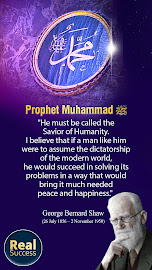The Purpose Of Creation
Majed S. Al-Rassi
Language: English | Format: PDF | Pages: 143 | Size: 1 MB
Language: English | Format: PDF | Pages: 143 | Size: 1 MB
Every individual is born into a religious environment that is not necessarily in accordance with his or her choice; children are raised to follow the religion or ideology of their family, society or culture. Even as new-borns, they are assigned either the religion of their family or the ideology of the state; in some countries, the child’s assigned religion is even recorded on the birth certificate. By the time individuals reach their teens, they have usually accepted the beliefs of their parents or their particular society, feeling that they have little choice in the matter.
However, individuals often encounter, or are exposed, to various beliefs and ideologies throughout the course of their lives, leading many to question long-held beliefs, traditions or philosophical ideas. They begin to question the validity of their own beliefs. Seekers of truth often reach a point of confusion, especially upon realizing that the believers of every religion, sect, ideology and philosophy claim to profess the one and only truth.
There are only three possibilities: either everyone is correct or everyone is incorrect; or, only one is correct and the rest are incorrect. It is impossible for all of them to be upon the true religion as the fundamentals of all religions are different. On the other hand, to claim that they are all incorrect is to deny that Allah (Subhânahu wa Ta‘âlâ – Glorified and Exalted is He) revealed His will to humankind. This proposition will seem absurd to those who believe in a Wise Creator. After all, why would Allah create human beings and not reveal a way to the truth? So, which religion is the right one and how can the seeker of truth come to know it? This is the main subject of this work.
When beginning the search for the true religion, one should keep the following four things in mind:
Firstly, Allah has given us the ability and the intellect to discover the answer to this crucial question, which is also a lifechanging decision: What is the true religion?
Secondly, Allah, the Most Compassionate, has not left us to go astray without any guidance. Indeed, He sent us prophets with scriptures to show us the right path.
Thirdly, always remember the underlying reason for this search: the ever-lasting life to come depends upon finding the true religion in this life. This should be your ultimate motivation, and a driving force to keep you searching until you are completely satisfied.2
Fourthly, one can only determine the true path and make a rational and correct decision if one willingly puts aside all the emotions and prejudices, which often blind one to reality.
2 The Bible, in its present form, confirms that seeking the truth is the main cause for salvation. In John 8:32, it has been stated, “And ye shall know the truth, and the truth shall make you free.” Muslims believe that the existing form of the Bible contains elements of the original true message, although it has been altered significantly.
Wise individuals know that they exist for a purpose and a final destination, whether or not they are aware of the exact nature of that destination. Wise individuals also understand that if they do not know where they are going, they will never strive to reach there. This little book has shed some light on the following:
# Why were human beings created?
# What is their final destination?
# How can they reach that destination ‘safely’?
# What is their final destination?
# How can they reach that destination ‘safely’?
With this short preface, I leave you to peruse the book.
–
About the word ‘Lord’
The word lord in English has several related meanings. The original meaning is ‘master’ or ‘ruler’ and in this sense it is often used to refer to human beings: ‘the lord of the mansion’ or ‘Lord So-and-So’ (in the United Kingdom, for example). The word Lord with a capital L is used in the lexicon of Islam to refer to the One and Only God – Allah. In Islam, there is no ambiguity about the meaning of this word. While it is true that one may occasionally use the word lord (whether capitalized or not) to refer to a human being, in Islamic discourse the reference of this term is always clear from the context. Whereas for Christians, Hindus and other polytheists, the word Lord with a capital L may refer to Allah, to Jesus or to some imagined deity, for Muslims, there can be no plurality of meaning. Allah alone is the Lord, and the Lord is Allah – not Jesus, not Rama, not any other being.
About the word ‘Allah’
Although the English word ‘God’ has often been used interchangeably in this book with the word Allah, there is a difference. ‘Allah’ is the word in Arabic that is translated as ‘God’. However, ‘Allah’ has a much more precise meaning than ‘God’. ‘Allah’ is not merely an Arabic term for the word ‘god’. Instead, the root word of the word ‘Allah’ is ilâh, which means ‘a god’. There are countless numbers of made-up ‘gods’, but only One True God whose name is Allah. The word ‘Allah’ literally means ‘the worshipped’. Allah is, thus, the proper name for the only Being that is worthy of worship, the True Creator of the universe. By saying ‘Allah’, Muslims are, in essence, negating every other entity which people wrongfully worship. The name ‘Allah’ is how God Almighty has referred to Himself in the Qur’an1, and how Prophet Muhammad (blessings and peace be upon him) also referred to Him. Therefore, in this work, the term ‘Allah’ will often be used in reference to this One and Only God, who is worthy of worship.
1 The Qur’an is the sacred book or scripture revealed to Prophet Muhammad (blessings and peace be upon him).
–
Contents:
Honorific phrases in this book ………………………………………….. 5
About the word ‘Lord’ ………………………………………………………. 8
About the word ‘Allah’ ……………………………………………………… 9
Preface …………………………………………………………………… 11
Introduction …………………………………………………………………… 12
1. Proof of Allah’s Existence …………………………………………… 15
2. The Purpose of Creation ……………………………………………… 18
3. Monotheism: the Message of all the Prophets ………………… 21
4. The Basic Message of Islam ………………………………………… 24
5. Proofs that Only Allah Deserves to be Worshipped ………… 26
6. The Message of False Religions …………………………………… 35
7. Allah and His Creation ……………………………………………….. 40
8. The Meaning of the Religion’s Name: ‘Islam’ ……………….. 45
9. The Six Articles of Islamic Faith ………………………………….. 49
1. Belief in Allah …………………………………………………………
2. Belief in the Angels …………………………………………………
3. Belief in the Scriptures ……………………………………………..
4. Belief in the Messengers of Allah ………………………………
5. Belief in the Last Day ………………………………………………
6. Belief in Predestination …………………………………………….
10. The Five Pillars of Islam …………………………………………… 78
1. The Declaration of the two Testimonies of Faith …………
2. Prayers …………………………………………………………………..
3. Zakâh [Obligatory Charity] ………………………………………
4. Fasting in the month of Ramadan
5. Hajj [Pilgrimage to Makkah]
11. The Meaning of Worship in Islam………………….……83
12. The Moral System in Islam……….……………………..84
1. Relations with the Lord
2. Relations with people – general
3. Relations with parents
4. Relations with relatives
5. Relations with neighbours
6. Food – Moral conduct
7. Hygiene – Islamic moral conduct
8. Spiritual – Islamic moral conduct
9. Family structure and rights
10. Decency and veiling
11. The rights of the wife
12. Polygyny
13. Divorce rules
14. Protection of life
15. Protection of property
16. Maintaining health
17. Animal rights
18. Rights of the deceased
13. Islam and other Religions ……………………………………….. 100
14. Features of Islamic Teachings ………………………………….. 101
1. Rationality
2. Perfection
3. Clarity
4. Scientific validity and accuracy
5. Prophetic fulfilment
6. Moderation
7. Comprehensiveness
8. Uniqueness
9. Justice
The Purpose of Creation
15. Islam, the Universal Religion ……………………………………. 106
16. Why Islam? …………………………………………………………… 107
17. A Final Call to Reason ……………………………………………. 112
18. This Is It …. ……………….…………………………….114
19. A Whisper……………………………………….……..116
20. How to become a Muslim. ………………………………………. 120
21. To Sum it Up. ………………………………………………………… 127
22. Conclusion. …………………………………………………………… 128
Bibliography ………………………………………………………………… 134
Appendix …………………………………………………………………. 135
Glossary…… ………………………………………………………………… 138
About the word ‘Lord’ ………………………………………………………. 8
About the word ‘Allah’ ……………………………………………………… 9
Preface …………………………………………………………………… 11
Introduction …………………………………………………………………… 12
1. Proof of Allah’s Existence …………………………………………… 15
2. The Purpose of Creation ……………………………………………… 18
3. Monotheism: the Message of all the Prophets ………………… 21
4. The Basic Message of Islam ………………………………………… 24
5. Proofs that Only Allah Deserves to be Worshipped ………… 26
6. The Message of False Religions …………………………………… 35
7. Allah and His Creation ……………………………………………….. 40
8. The Meaning of the Religion’s Name: ‘Islam’ ……………….. 45
9. The Six Articles of Islamic Faith ………………………………….. 49
1. Belief in Allah …………………………………………………………
2. Belief in the Angels …………………………………………………
3. Belief in the Scriptures ……………………………………………..
4. Belief in the Messengers of Allah ………………………………
5. Belief in the Last Day ………………………………………………
6. Belief in Predestination …………………………………………….
10. The Five Pillars of Islam …………………………………………… 78
1. The Declaration of the two Testimonies of Faith …………
2. Prayers …………………………………………………………………..
3. Zakâh [Obligatory Charity] ………………………………………
4. Fasting in the month of Ramadan
5. Hajj [Pilgrimage to Makkah]
11. The Meaning of Worship in Islam………………….……83
12. The Moral System in Islam……….……………………..84
1. Relations with the Lord
2. Relations with people – general
3. Relations with parents
4. Relations with relatives
5. Relations with neighbours
6. Food – Moral conduct
7. Hygiene – Islamic moral conduct
8. Spiritual – Islamic moral conduct
9. Family structure and rights
10. Decency and veiling
11. The rights of the wife
12. Polygyny
13. Divorce rules
14. Protection of life
15. Protection of property
16. Maintaining health
17. Animal rights
18. Rights of the deceased
13. Islam and other Religions ……………………………………….. 100
14. Features of Islamic Teachings ………………………………….. 101
1. Rationality
2. Perfection
3. Clarity
4. Scientific validity and accuracy
5. Prophetic fulfilment
6. Moderation
7. Comprehensiveness
8. Uniqueness
9. Justice
The Purpose of Creation
15. Islam, the Universal Religion ……………………………………. 106
16. Why Islam? …………………………………………………………… 107
17. A Final Call to Reason ……………………………………………. 112
18. This Is It …. ……………….…………………………….114
19. A Whisper……………………………………….……..116
20. How to become a Muslim. ………………………………………. 120
21. To Sum it Up. ………………………………………………………… 127
22. Conclusion. …………………………………………………………… 128
Bibliography ………………………………………………………………… 134
Appendix …………………………………………………………………. 135
Glossary…… ………………………………………………………………… 138










.gif)


































